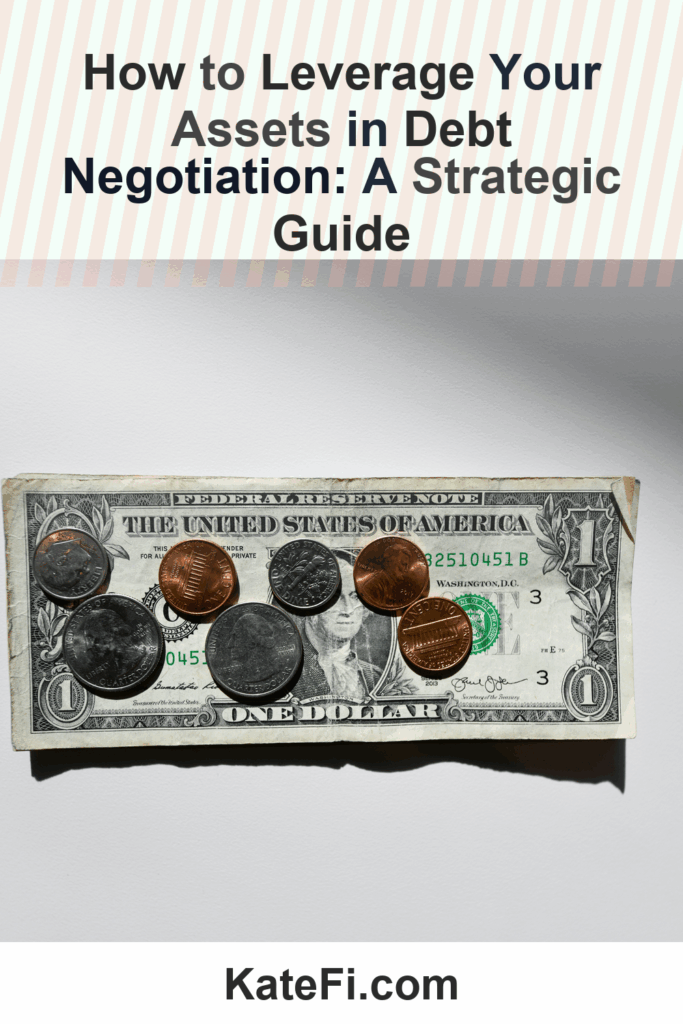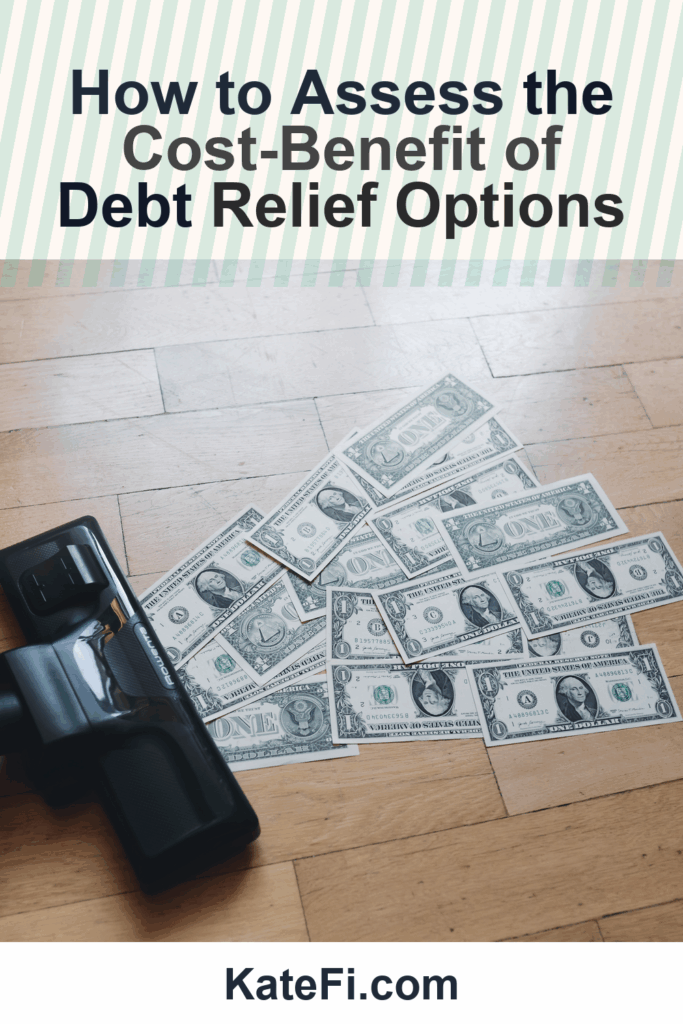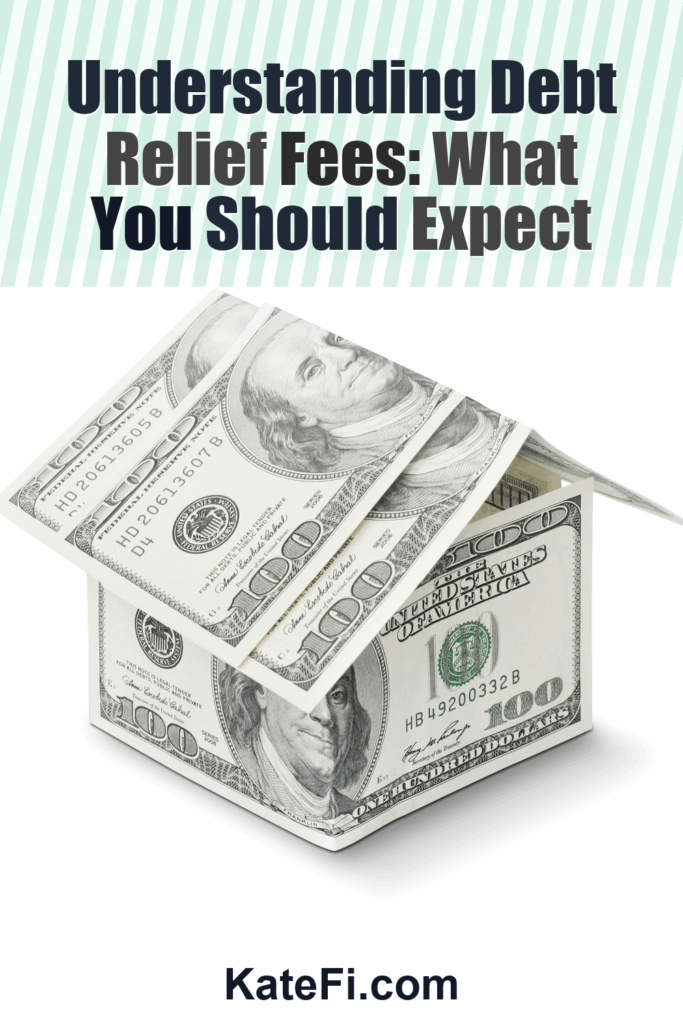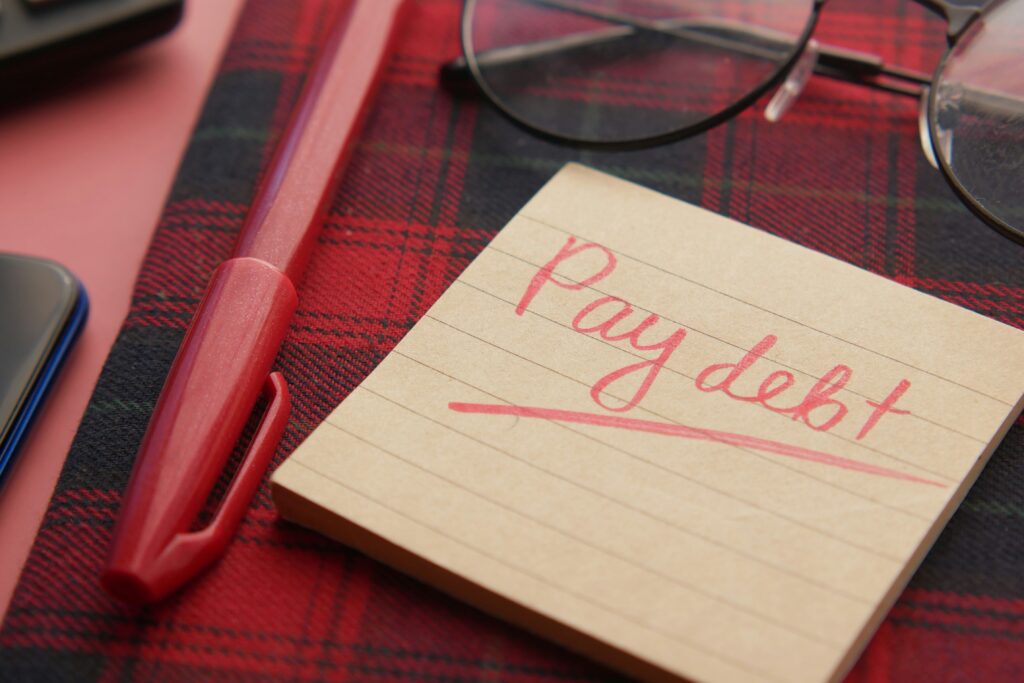10 Myths About Debt Settlement You Should Stop Believing
Debt can be a heavy burden, weighing down both your financial stability and your emotional well-being. When faced with overwhelming debt, many people consider debt settlement as a potential solution. However, several myths surrounding debt settlement can cloud judgment and lead to poor decision-making. Let’s dispel these myths and provide you with practical advice, actionable steps, and a path to better financial health.
Love our content? Show your support by following us — pretty please!🥺
FOLLOW ON PINTEREST
Hi! I’m Kate, the face behind KateFi.com—a blog all about making life easier and more affordable.
If you’re currently grappling with debt and considering your options, we recommend getting a free consultation to review your situation and explore your options.
Myth #1: Debt Settlement Is Just Like Bankruptcy
👉 Start Your Free Debt Relief Review
Not available in IL, KS, OR, TN, UT, WV.
Many people mistakenly believe that debt settlement and bankruptcy are the same. While both involve reducing the amount you owe, they are distinct processes. Bankruptcy is a legal process that can eliminate debts entirely, while debt settlement involves negotiating with creditors to pay a reduced amount. Debt settlement often allows you to retain more of your assets and avoid the long-lasting impact of bankruptcy on your credit.
Myth #2: Debt Settlement Guarantees a Specific Reduction in Debt
Lower Your Unsecured Debt
If you have $5,000+ in credit card or personal loan debt, a free consult can review options like settlement or hardship plans.
- One-on-one call to review your debts and goals
- See potential monthly payment reductions
- No obligation to enroll
Not available in IL, KS, OR, TN, UT, WV.
A common misconception is that debt settlement guarantees a certain percentage reduction in the total debt. Unfortunately, results vary significantly depending on your unique financial situation, the creditors involved, and the negotiation process. While many people do achieve substantial reductions, it’s essential to approach debt settlement with realistic expectations.
✅ See If You Qualify for Debt Relief
Myth #3: You Have to Be Behind on Payments to Negotiate
Understand pros/cons of settlement vs consolidation vs DMP for your exact mix of debts.
Not available in IL, KS, OR, TN, UT, WV.
Another common myth is that you must be in default or behind on payments to negotiate with creditors. In reality, you can negotiate at any point during the repayment period. Being proactive can sometimes lead to more favorable outcomes than waiting until you’re facing severe financial difficulties.
Pro Tip: Prepare for Negotiation
- Gather documentation such as bills, bank statements, and communication with creditors.
- Understand your financial situation and have a clear goal in mind regarding what you wish to achieve through negotiation.
- Practice what you want to say. Consider having a friend or family member role-play as your creditor.
Myth #4: Debt Settlement Is a Quick Fix
Many people believe that debt settlement is a quick fix to their financial problems. However, the process often takes time and requires patience. Negotiations can span several months, and you may need to set aside funds in a separate account to prepare for lump-sum payments to creditors.
Pitfall: Avoiding Budgeting
Failing to budget during the settlement process can lead to further financial strain. It’s crucial to create a realistic budget that allows you to save while also covering your essential expenses.
| Method | Timeframe | Ideal For |
|---|---|---|
| Debt Snowball | Months to Years | Those needing motivation through small wins. |
| Debt Avalanche | Months to Years | Those who want to save the most on interest. |
Consider using the debt snowball method, where you focus on paying off the smallest debts first to build momentum, or the debt avalanche method, which targets high-interest debts to minimize overall costs.
✅ See If You Qualify for Debt Relief
Myth #5: Debt Settlement Only Works for Credit Card Debt
While credit card debt is one of the most common types of debt settled, it’s not the only one. You can negotiate various types of unsecured debt, including medical bills, personal loans, and even some types of business debts.
Practical Checklist for Gathering Documents
- List all debts, including creditors and outstanding amounts.
- Collect all communication with creditors.
- Review your credit report to understand your debt landscape.
- Organize recent bank statements and income documentation.
Myth #6: Settling Debt Will Ruin Your Credit Score
It’s true that debt settlement can impact your credit score, but it’s essential to understand that the damage may be less severe than continued missed payments. While settling can initially lower your score, over time, it may be less damaging than letting debts go unpaid, which can lead to collections and additional negative marks.
Credit Impact Discussion
If you opt for debt settlement, your credit report may reflect settled accounts, which could indicate to future lenders that you had difficulty managing your debt. However, with a solid post-settlement plan that includes timely payments and smart budgeting, you can rebuild your credit over time.
✅ See If You Qualify for Debt Relief
Myth #7: You Don’t Need Professional Help
While some people choose to negotiate their debts on their own, enlisting the help of professionals can often lead to better outcomes. Experienced negotiators have established relationships with creditors and understand the nuances of the negotiation process, which can be beneficial in securing more favorable settlements.
Pitfall: Going It Alone
Attempting to negotiate without a clear understanding of the process or without having done your research can result in missed opportunities for better settlements. It’s crucial to approach the process armed with knowledge or professional guidance.
Myth #8: Debt Settlement Is the Only Option
Debt settlement is one solution, but it’s not the only option available to you. Other avenues include debt management plans, debt consolidation, and bankruptcy. It’s vital to evaluate all possible routes and understand their implications before deciding on a course of action.
Myth #9: All Debt Relief Programs Are the Same
Not all debt relief programs are created equal. The costs, services offered, and success rates can vary widely. It’s essential to do your research and consider consulting a trusted resource to navigate your options effectively.
Checklist for Evaluating Debt Relief Programs
- Compare fees and success rates of different programs.
- Read reviews and testimonials from past clients.
- Ask about potential risks involved in the program.
✅ See If You Qualify for Debt Relief
Myth #10: You Can Only Settle Your Debt Once
People often think they can only attempt a settlement once and must accept the outcome. In reality, you can negotiate multiple times and with different creditors if necessary. Persistence can pay off, and sometimes initial offers may not reflect your potential for better terms.
Conclusion: Empower Yourself With Knowledge
Debt settlement can be a viable option for those feeling overwhelmed by their financial obligations, but it’s essential to separate fact from fiction. Understanding the myths that cloud this topic can empower you to make informed decisions.
If you’re ready to take the next step, we strongly encourage you to get a free consultation with a debt relief expert. Knowledge is your most potent tool in navigating debt, and having a plan in place can lead to a brighter financial future.
Important: This content is for education only—not legal, tax, or financial advice. Results and eligible programs vary by situation and state. Fees apply if you enroll and complete a program. Debt relief can affect credit; missed payments may lead to collections/lawsuits. Not available in IL, KS, OR, TN, UT, WV.
Now, equipped with this knowledge, you’re one step closer to achieving financial freedom. Choose the path that best suits your situation, and don’t hesitate to reach out for support!






















